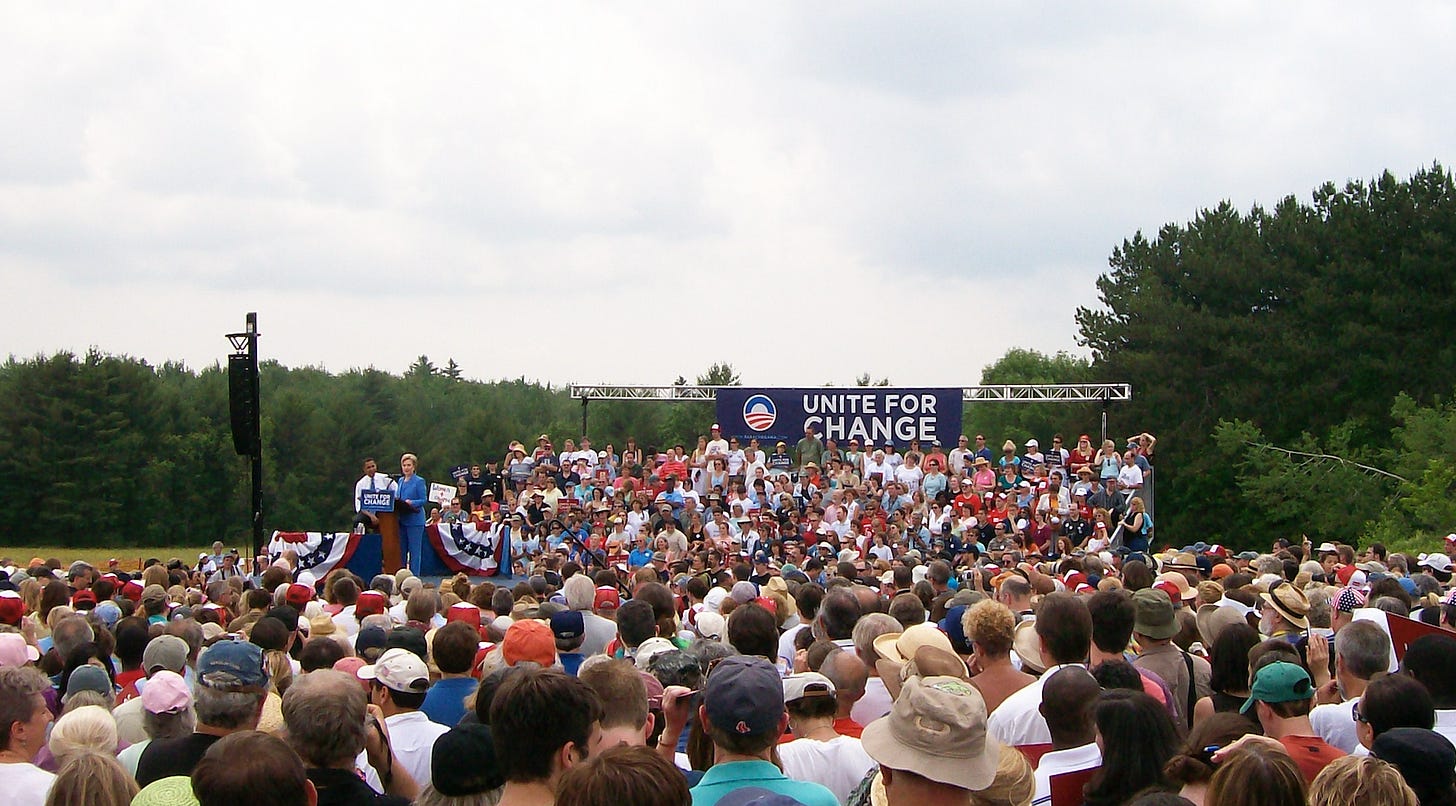Iowa and New Hampshire shouldn't get to go first
There are benefits, but they're not enough to offset the huge costs
Note: This post is adapted from an article I wrote yesterday for The Conversation, which is an awesome publication that I’d strongly suggest adding to your media diet! The post below is a slightly longer, juicier version of the shorter version that came out yesterday.
Are you sick of hearing about Iowa and New Hampshire yet? I am, and I do this for a living. The two states have, for at least the entirety been the first states to hold presidential contests in election years. They’re both fine states for many reasons—I’ve been to both, and had lovely, sometimes life-changing experiences in both.

But I’m not wild about them picking our presidents almost single-handedly. This process of "frontloading" primaries raises serious concerns around fairness, diversity, and political representation that can't go unaddressed.
They aren’t good stand-ins for the rest of the country
The first big issue with giving these states so much clout is that they're just not representative of the country, particularly on the basis of race. White, non-Hispanic residents make up 84% and 89% of Iowa and New Hampshire respectively, compared with just 58% of the nation as a whole.
This matters because the presidency is a national office that affects everyone. Because of the boost in political momentum, media coverage and donations that a win in Iowa or New Hampshire can provide, their choices have a bigger effect on the race than most other states. Candidates recognize this and campaign accordingly: Nearly 80% of all Republican candidates’ events through mid-January 2024 had taken place in Iowa and New Hampshire. Iowa and New Hampshire take great pride in serving as the "testing grounds" for presidential hopefuls; but their ability to represent the whole country is limited.
Staggering the primaries just isn’t fair
American elections are carried out by a decentralized system. States and parties choose to hold primary elections at different times throughout an election year leading up to the party conventions.
Even if Iowa and New Hampshire were a perfect demographic mirror of the country, the process would still be unfair to states that don’t vote early. In almost all modern cases, the primaries in both major parties have been all but wrapped up by April, leaving dozens of states that had not yet held primaries essentially without a voice in the process. In the 2020 Democratic primary, for example, Joe Biden’s main rival – Sen. Bernie Sanders – suspended his campaign before 26 states and territories had even held their contests.
Later states might have a kind of information advantage. For example, some states will likely have the benefit of seeing the outcomes of some of Donald Trump’s many legal cases, while Iowa and New Hampshire voters will not.

But this advantage cuts both ways. Voters in later-voting states often don’t even see the same slate of candidates on their ballot as Iowans do. Now that Gov. Ron DeSantis has suspended his campaign, most of the country’s voters will never have gotten a legitimate chance to weigh in on him.
Are there any good reasons to lead with IA and NH?
All that said, Iowa and New Hampshire do bring something important to the table that I don’t want to undercut. For one thing, they're both small states, so voters can theoretically get to know the candidates on a more intimate basis, and political science tells us that voters do think of politics in personal terms.
Plus, although Iowa and New Hampshire are both very white, they're still very different kinds of states, and tend to pick different types of candidates: Iowa tends to pick more ideologically extreme candidates (particularly on the right), whereas New Hampshire — one of only a few states where Independents are a plurality of voters — tends to lean more moderate.
What are the alternatives?
One alternative is simply to choose different, more diverse states to go first on the primary calendar. Frontloading bigger states like California, Illinois or Texas would certainly bring a broader swath of voters into the mix; but it also would make person-to-person campaigning more difficult. It’s also politically fraught: Democrats moved South Carolina earlier in their own primaries in 2024, but it was perceived by many as a move to boost incumbent Biden, who lost Iowa and New Hampshire in the 2020 primaries, but won South Carolina.
A more substantial reform could create a single primary election day for all states. This is, of course, how we do every other election in this country, so it's not unheard of. If primaries for statewide office happen on one day, why can't this happen nationwide?
Small states would surely dislike this reform: By the current method of staggering elections, these states can shine individually, rather than get lost in the mix of larger states with more voters and delegates. Staggered primaries might also help voters get to know the candidates on a more intimate basis, and political science says voters think of politics in personal terms.
But the current cost – disenfranchising so many voters in later-voting states – just might not be worth the tradeoff.
Congratulations! You read until the end of the post, which means you get a couple pictures of my brand new puppy (and the wonderful reason I’m repurposing one of my other publications instead of writing something original for you this week), Pennie the miniature long-haired dachshund. Yes, she is as small as she looks.
Happy New Hampshire primary day!








I have already come dangerously close to stepping on her!
Already a very informative piece but OH MY GOODNESS THE PUPPY